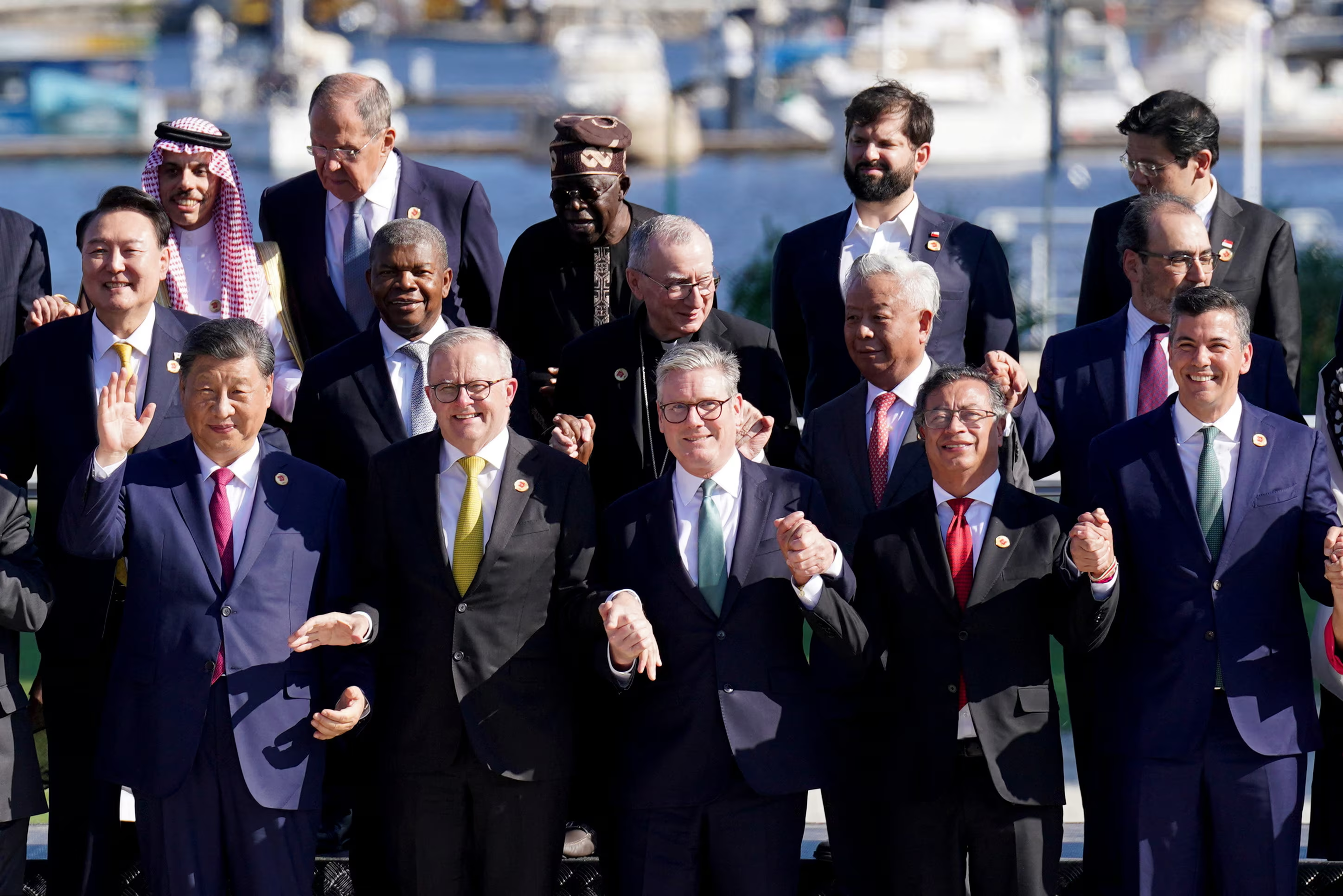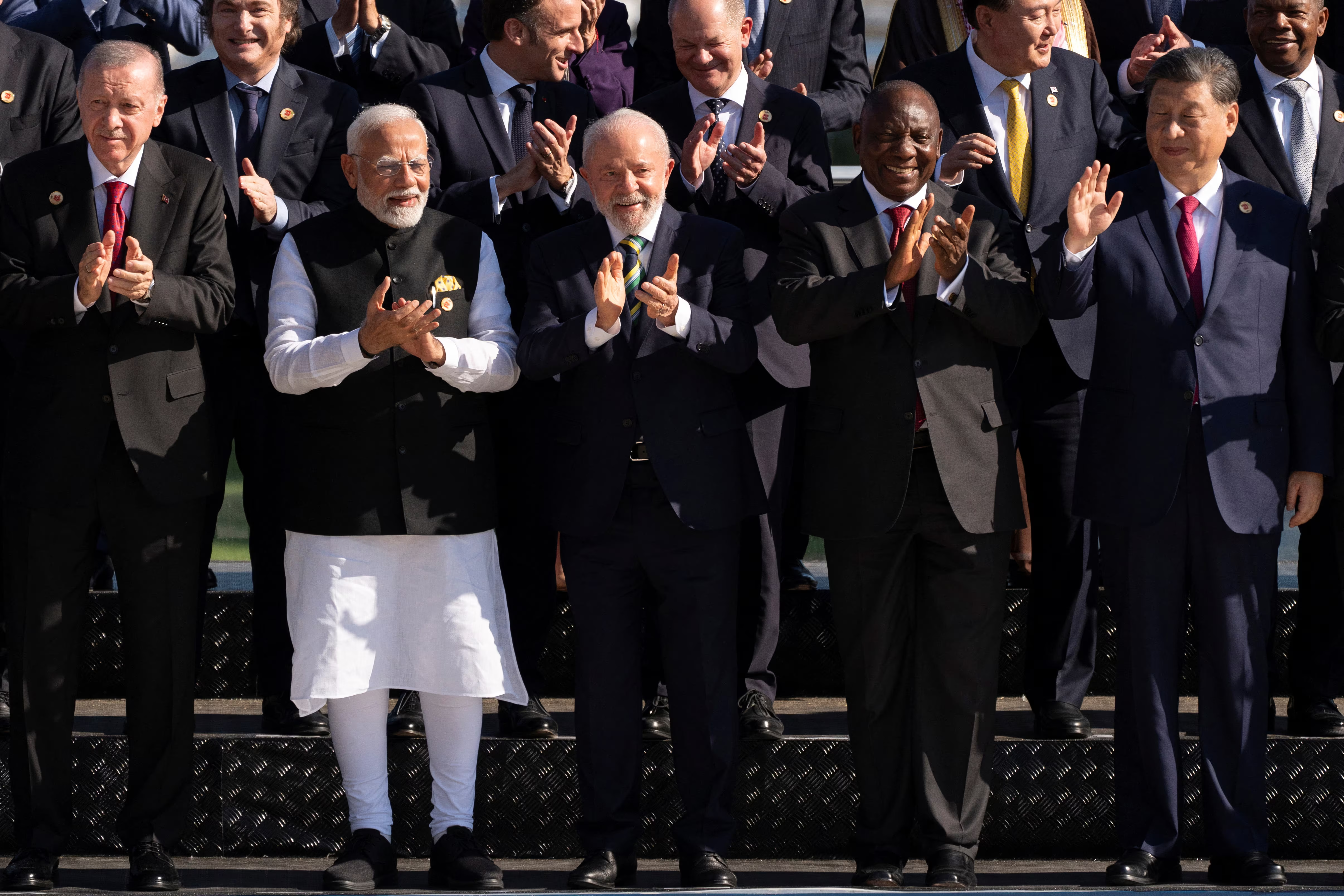The Group of 20 major economies concluded their summit Tuesday with intensive discussions on climate change and clean energy transition, aiming to build momentum for the upcoming United Nations climate negotiations in Azerbaijan.

The final day’s agenda prioritized sustainable development amid mounting pressure to address global warming, as 2024 approaches with the world experiencing its warmest year on record. The timing gains particular urgency as political transitions loom, including potential changes in U.S. leadership that could impact global climate commitments.
In a significant move late Monday, G20 leaders issued a joint statement calling for a dramatic escalation in climate finance “from billions to trillions from all sources.” The declaration addresses a critical challenge facing COP29 negotiators: establishing new financial targets for wealthy nations’ support of developing countries’ climate initiatives.
Brazilian President Luiz Inacio Lula da Silva, hosting the Rio summit, emphasized the worldwide visibility of climate change impacts and called for immediate action. The G20’s influence carries particular weight, as member nations control 85% of the global economy and generate more than three-quarters of climate-warming emissions.

However, divisions persist regarding financial responsibilities. European nations and other developed countries advocate expanding the contributor base to include wealthier developing nations like China and affluent Middle Eastern states. Meanwhile, developing countries, led by Brazil, resist this expansion, pointing to developed nations’ historical responsibility for climate change.
A proposed compromise suggesting voluntary contributions from developing nations failed to secure inclusion in the final agreement, highlighting ongoing tensions in climate finance negotiations.
Beyond climate initiatives, G20 leaders committed to finalizing a legally binding treaty to combat plastic pollution by the end of 2024, with negotiations set to resume next week after two years of deliberations.
The summit’s climate focus follows an urgent appeal from COP29 host Azerbaijan, requesting clear mandates from G20 nations to revitalize stalled climate talks in Baku. Economists suggest that future climate finance goals should target at least $1 trillion annually to meet global challenges effectively.



